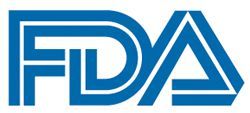Article
FDA Green Lights NGS-Based Companion Diagnostic for Trastuzumab Deruxtecan in HER2-Mutated NSCLC
Author(s):
The FDA has approved the Oncomine Dx Target Test as a companion diagnostic to identify patients with NSCLC harboring an activating HER2 mutation who may derive clinical benefit from treatment with fam-trastuzumab deruxtecan-nxki.

The FDA has approved the Oncomine Dx Target Test as a companion diagnostic to identify patients with non–small cell lung cancer (NSCLC) harboring an activating HER2 mutation who may derive clinical benefit from treatment with fam-trastuzumab deruxtecan-nxki (Enhertu).1
The Oncomine Dx Target Test is a next-generation sequencing (NGS)–based companion diagnostic designed to simultaneously evaluate 23 genes associated with NSCLC. The test first received FDA approval as a companion diagnostic in 2017, and it is approved for 7 targeted therapies for NSCLC and 1 for cholangiocarcinoma.
“With care decisions increasingly made based on a tumor’s molecular profile, the FDA’s latest approval of [trastuzumab deruxtecan] in HER2-mutant metastatic NSCLC and the additional approval of the Oncomine Dx Target Test as a companion diagnostic marks a significant step forward for precision oncology,” Garret Hampton the president of Clinical Next-Generation Sequencing and Oncology at Thermo Fisher Scientific, stated in a news release. “To ensure patients and clinicians can readily access testing to inform care decisions, we are committed to making NGS accessible and easy to use so patients everywhere will be able to benefit from precision therapies, when indicated.”
On August 11, 2022, the FDA granted an accelerated approval to trastuzumab deruxtecan for adult patients with unresectable or metastatic NSCLC whose tumors have activating HER2 mutations, as detected by an FDA-approved test, and who have received previous systemic therapy.2 The recommended dose is 5.4 mg/kg every 3 weeks.
The regulatory decision was supported by findings from the multicenter, multicohort, randomized, blinded, dose-optimization phase 2 DESTINY-Lung02 trial (NCT04644237). Investigators found that in patients with unresectable or metastatic, HER2-mutant, nonsquamous NSCLC who experienced disease progression following previous systemic therapy (n = 52), trastuzumab deruxtecan at a dose of 5.4 mg/kg every 3 weeks elicited a confirmed overall response rate (ORR) of 58% (95% CI, 43%-71%) with a median duration of response (DOR) of 8.7 months (95% CI, 7.1–not estimable).2
The trial enrolled patients who were at least 18 years old with unresectable or metastatic HER2-mutant NSCLC. Eligible patients had received prior platinum-based chemotherapy in the metastatic/locally advanced setting and were not amenable to curative surgery or radiation.3 Patients were required to have an ECOG performance status of 0 or 1, an adequate treatment washout period prior to randomization, and a life expectancy of at least 3 months.
Patients were excluded from the trial if they had a known EGFR, BRAF, or MET exon 14 driver mutation, or a known ALK, ROS1, RET, or NTRK fusion; a history of non-infectious interstitial lung disease (ILD)/pneumonitis that required steroids, current ILD/pneumonitis, or suspected ILD/pneumonitis that could not be ruled out by imaging at screening; or a medical history of myocardial infarction within 6 months before randomization or symptomatic congestive heart failure.
Patients were randomly assigned to 5.4 mg/kg or 6.4 mg/kg of trastuzumab deruxtecan every 3 weeks. The primary end point of the trial was ORR by blinded independent central review. Secondary end points included investigator-assessed ORR, DOR, disease control rate, progression-free survival, overall survival, and safety.
The most common adverse effects (AEs) experienced by 20% or more of patients included decreased white blood cell count, hemoglobin, neutrophil count, lymphocyte count, platelet count, and albumin. Other common AEs included increased aspartate aminotransferase, increased alanine aminotransferase, nausea, fatigue, constipation, decreased appetite, vomiting, increased alkaline phosphatase, and alopecia.
References
- FDA approves first NGS-based companion diagnostic to aid in selecting non-small cell lung cancer patients with HER2 (ERBB2) activating mutations (SNVs & exon 20 insertions) for treatment with Enhertu. News release. Thermo Fisher Scientific. August 12, 2022. Accessed August 16, 2022. https://bwnews.pr/3STT1s9
- FDA grants accelerated approval to fam-trastuzumab deruxtecan-nxki for HER2-mutant non-small cell lung cancer. News release. FDA. August 11, 2022. Accessed August 16, 2022. https://bit.ly/3bVts9g
- Trastuzumab deruxtecan in participants with HER2-mutated metastatic non-small cell lung cancer (NSCLC) (DESTINY-LUNG02). ClinicalTrials.gov. Updated April 29, 2022. Accessed August 16, 2022. https://www.clinicaltrials.gov/ct2/show/NCT04644237







